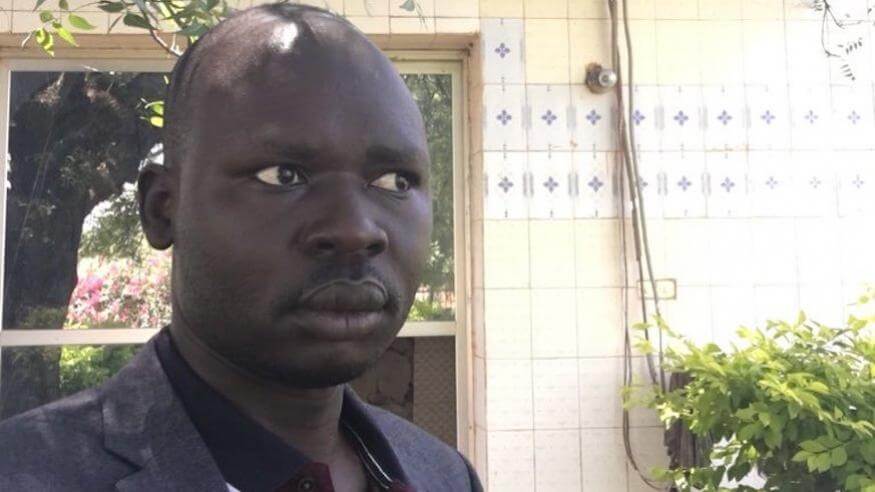Peter Biar Ajak, 34, is one of the ‘Lost Boys’ displaced by the decades-long Sudanese civil war who came to the U.S. in the early 2000s. In the years since, he has become an outspoken advocate for political reform in his native land. But some friends and supporters fear that his political ideas may have made him a target to government authorities who arrested him when he returned to South Sudan on July 28.
“He’s currently being held there without charges. The government hasn’t said why he’s there,” said Aaron Spence, a friend of Ajak’s and former classmate from La Salle University in Philadelphia. “From what we understand the motivation of this is not hidden – Peter and other individuals are being arrested as political prisoners for speaking out against the government.”

Peter Biar Ajak’s family, who he lives with in Nairobi, Kenya, has reportedly confirmed that he is being treated decently while held in solitary confinement, and his wife has been allowed to visit him. But in 18 days, he has not been charged or allowed to consult with a lawyer. His jail, “The Blue House,” is reputed to have been a site of various human rights abuses, including beatings, torture and a lack of adequate medical care. A government panel is reportedly reviewing his social media activities and political commentary in a search for something with an eye for potential charges.
“South Sudan’s security agents have long harassed and arbitrarily detained people, apparently to silence independent voices,” said Jehanne Henry, associate Africa director at Human Rights Watch, in a statement demanding the release of Ajak and other South Sudanese political prisoners. ” “South Sudanese authorities should release everyone being held arbitrarily and change the way the national security agency operates.”
About Peter Biar Ajak
Currently a doctoral candidate at Cambridge University, a graduate of La Salle with a master’s degree from Harvard and a senior advisor at the International Growth Centre think tank, Peter Biar Ajak is known in South Sudan as a “youth advocate for peace.” Friends and supporters around the world have mobilized to build support for his release using the #FreePeterBiar hashtag. Some 30,000 people have signed a Change.org petition and U.S. Senators Bob Casey, Marco Rubio, Cory Booker, Bob Menendez all issuing statements of support and demanding his release.
Ajak is also a founder of South Sudan Young Leaders Forum, and hasn’t hesitated to criticize leadership in the administration of South Sudan President Salva Kiir.
“Since 2005 the leaders of South Sudan … have been getting everything wrong,” he said in a presentation on Kenyan TV in July in which he advocated for a “generational exit.” In general, he has bluntly urged older leaders of South Sudan to step aside to be replaced by younger citizens, including former child soldiers in the Red Army, an organization that in recent years members have sought to refocus as a force for national welfare.
But those criticism may have gotten him unwanted attention from authorities, with his arrest came just days before President Kiir signed a treaty and power-sharing deal to end an armed conflict in the region.
“Peter is probably one of the most aggressive and outspoken individuals about the nature of politics in South Sudan,” Spence said. “He’s a peaceful, non-violent man, he wants what’s best for South Sudan, but to the people in power it may come across as something different.”
It’s unclear why NSS arrested Ajak and if he is truly in danger, but dozens of political prisoners have been arrested in South Sudan in recent years. Many have been released after stints in custody, but at least two prisoners reportedly have disappeared.
While the campaign to raise awareness of Ajak’s imprisonment is getting some support, the difficulty of explaining the political situation in South Sudan may be hindering the Western public from getting involved.
“We don’t know a lot in the west about South Sudan, we don’t talk about it, we can’t point to it on a map, we talk about Darfur, but no one can talk about what’s going on in the region right now,” Spence said. “Peter really just wants to go back to his county and help. He’s trying to galvanize young leaders, and say to them, ‘There is a future, and if we can lead, we can stand up and realize this.'”




























